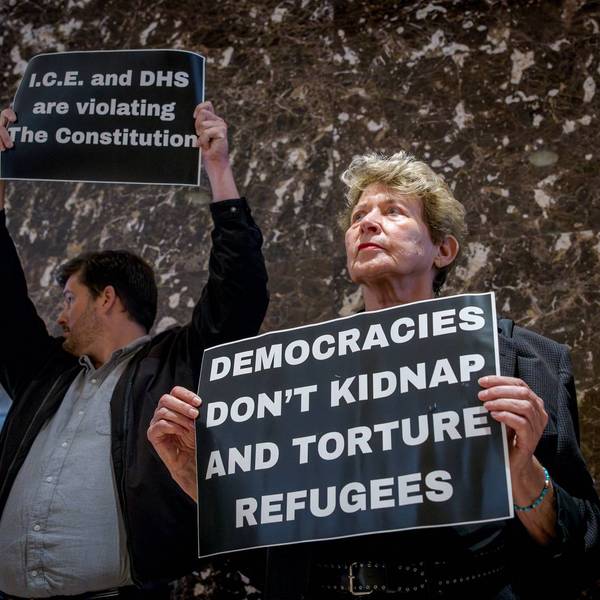The vast majority of people worldwide--80 percent--would welcome refugees with open arms, according to a global survey commissioned by Amnesty International.
The first-ever Refugees Welcome Index exposes how governments that take outlandish measures against asylum are out of touch with their citizens, Amnesty said. The survey found that not only were people willing to accept refugees in their home countries, they would go "to astonishing lengths" to make them welcome.
"These figures speak for themselves," said Amnesty's secretary general Salil Shetty. "People are ready to make refugees welcome, but governments' inhumane responses to the refugee crisis are badly out of touch with the views of their own citizens."
The index "exposes the shameful way governments have played short-term politics with the lives of people fleeing war and persecution," Shetty said. "Governments must heed these results, which clearly shows the vast majority of people ready and willing to make refugees welcome in their country."
China, Germany, and the UK were the most inviting, while Russia, Indonesia, and Thailand were the least willing to grant asylum, the survey found.
In China, 46 percent of people said they would be willing to take refugees into their own homes, while 29 percent of respondents from the UK--the second-highest in the ranks--said the same.
And in countries that have already accepted a large number of asylum-seekers, such as Greece and Jordan, public support for them has not waned. When asked, "Should your government do more to help refugees fleeing war or persecution?" 74 percent of Greeks said yes.
The survey, conducted by the public opinion research group GlobeScan, surveyed 27,000 people in 27 countries. The results include:
- Globally, one person in 10 would take refugees into their home: the number rises to 46% in China, 29% in the UK and 20% in Greece, but was as low as 1% in Russia and 3% in Poland.
- Globally, 32% said they would accept refugees in their neighbourhood, 47% in their city/town/village and 80% in their country.
- In 20 of the 27 countries, more than 75% of respondents said they would let refugees in their country.
- Globally, only 17% said they would refuse refugees entry to their country. Only in one country, Russia, did more than a third of people say they would deny them access (61%).
"We did not expect to see such strong levels of solidarity with refugees, but the results reflect the inspiring human compassion people feel to those fleeing war. They want to do what they can to help, not turn their backs. Politicians need to show the same spirit," Shetty said.
"The results reflect the inspiring human compassion people feel to those fleeing war."
--Salil Shetty, Amnesty International
GlobeScan director Caroline Holme added, "We designed the survey and Index to reflect the complexity of the refugee issue. People are grappling with multiple political and emotional arguments and we wanted to get their views as humans responding to a humanitarian crisis."
In response to the global refugee crisis, fueled in large part by the civil war in Syria that has already claimed at least 250,000 lives, Amnesty called on governments worldwide to resettle 1.2 million people by the end of 2017. The index comes just ahead of next week's World Humanitarian Summit in Istanbul, where leaders will try to iron out responsibilities to host and assist asylum-seekers.
"Governments' efforts to keep out people fleeing war and persecution fly in the face of the humanity and solidarity shown by their own citizens, not to mention their obligations under international law. Refugees should be helped, protected and welcomed into communities, not held at arm's length in refugee camps and detention centers," Shetty said.



